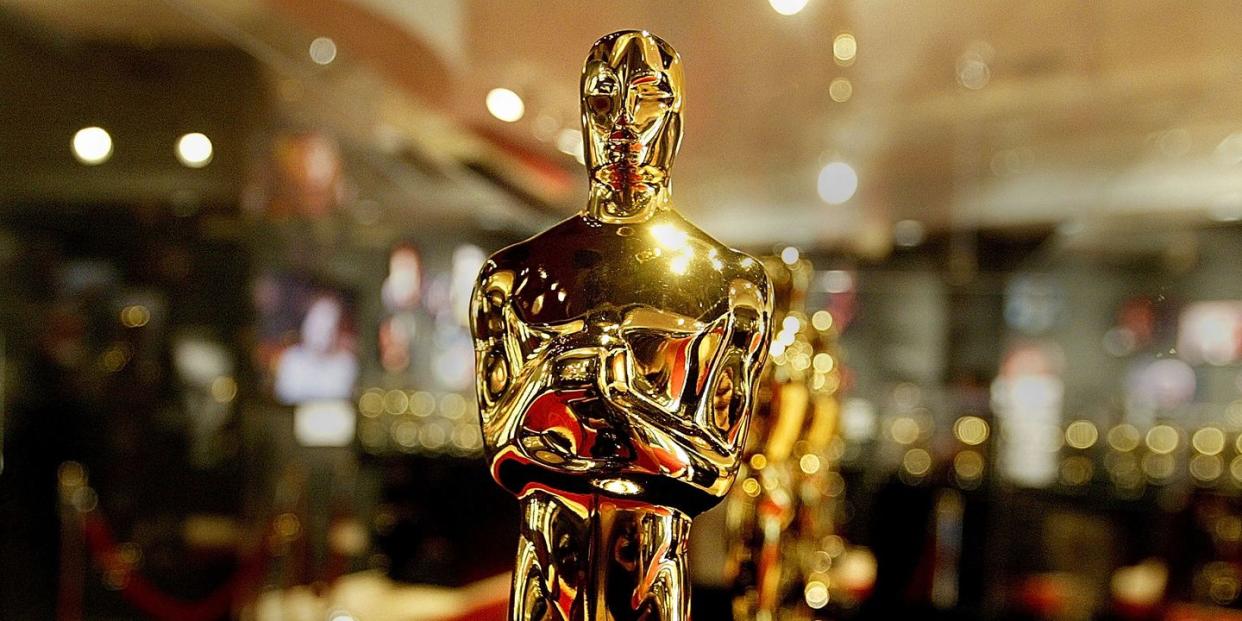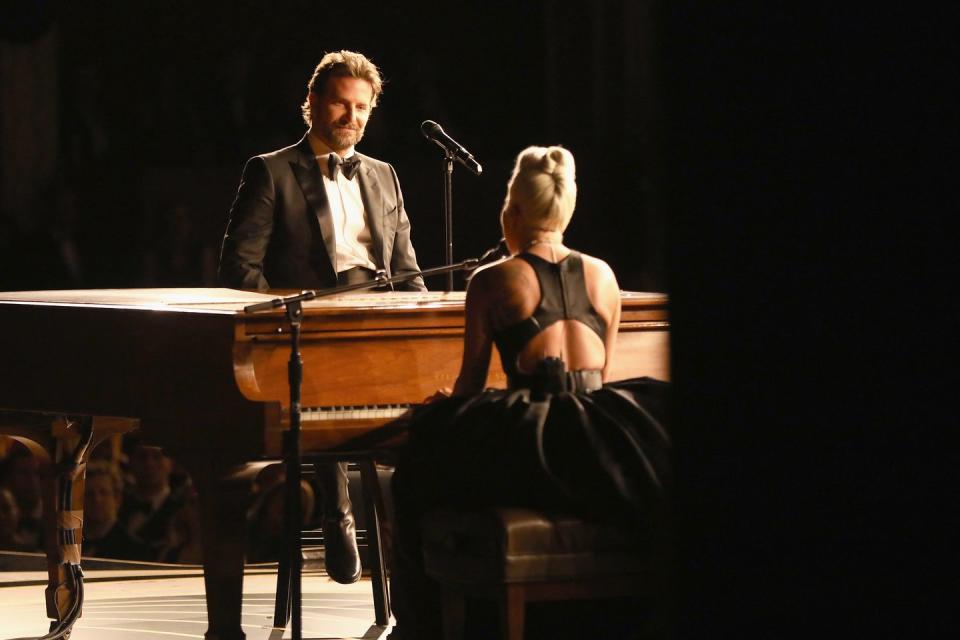Why the Oscars Don't Have a Host for the Second Year in a Row

When the Academy Awards broadcast begins tonight, viewers will once again be greeted by a series of stars, not a singular host. For decades, it was a given that one emcee would guide the audience through the ceremony—but a host-less Oscars is starting to seem more like the norm, after the Academy tried it out last year, for the first time since 1989.
Here's how we got here.
Kevin Hart was set to host in 2019—until a controversy forced him to step down.
In December 2018, the Academy announced that the comedian would lead the ceremony. But it wasn't long before some of Hart's old homophobic tweets were resurfaced. At first, he refused to apologize, but eventually bowed out of the gig.

Despite fears that the host-less Oscars would bomb, the ceremony actually went very well.
The 2019 show saw a 12% jump in viewership over the year before, and several key moments—like riffs from Tina Fey, Amy Poehler, and Maya Rudolph, and Bradley Cooper and Lady Gaga's surprisingly intimate performance—kept the audience hooked.
Now, they're sticking to what works.
On the heels of last year's successful show, the Academy is trying the host-less formula again. Karey Burke, entertainment president for ABC, confirmed the decision in January after months of speculation. "Together with the Academy, we have decided there will be no traditional host, repeating for us what worked last year," Burke said, per Deadline. "[It will have] huge entertainment values, big musical numbers, comedy and star power."
You Might Also Like

